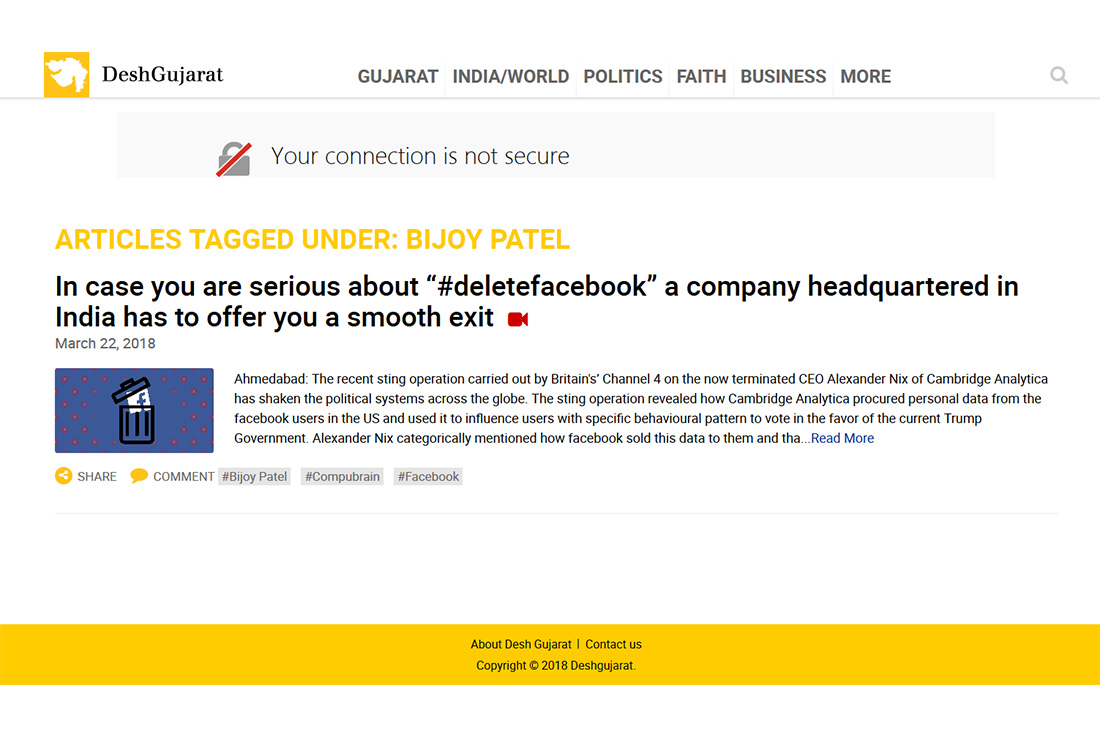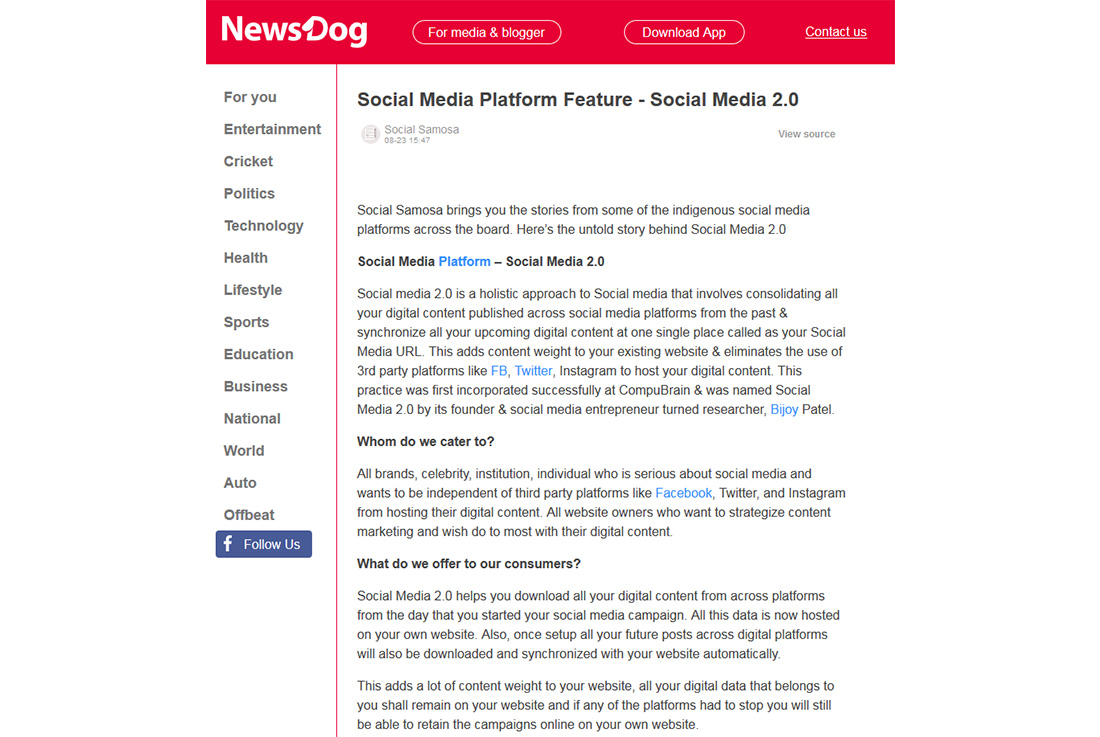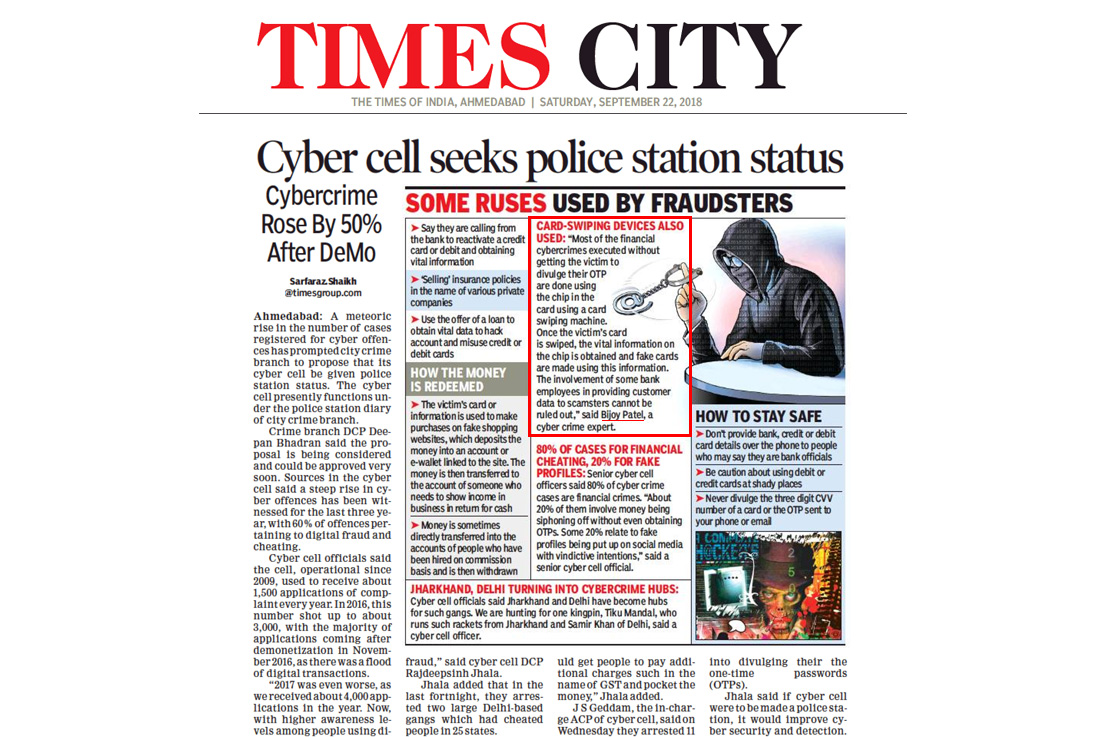In case you are serious about “#deletefacebook” a company headquartered in India has to offer you a smooth exit
Ahmedabad: The recent sting operation carried out by Britain’s’ Channel 4 on the now terminated CEO Alexander Nix of Cambridge Analytica has shaken the political systems across the globe. The sting operation revealed how Cambridge Analytica procured personal data from the facebook users in the US and used it to influence users with specific behavioural pattern to vote in the favor of the current Trump Government. Alexander Nix categorically mentioned how facebook sold this data to them and that they were able to put a successful campaign for their client. They used similar tactics to influence users during the BREXIT agreement too, he added.
While the British Government has summoned the Facebook top line Mark Zuckerberg and Sheryl Sandberg to come clean on the allegations and clear their stand, Mark Zuckerberg’s public statement appeals to be a mere bandaid on the problem, healing only the surface and ignoring the depth of this digital wound.
A world wide reaction was expected, while millions of Social Media users felt cheated suspecting that their privacy had gone on stake and if Facebook had already shared zillions of terabytes of user data elsewhere. The outcry was so deep that Whatsapp co founder Brian Acton tweeted his followers to delete their facebook account. The reaction was obvious and soon #deletefacebook hit the trend board across the globe.
A lot of users who were serious about privacy issues took no time in deciding to quit. Whilst the facebook fans are hoping to restore faith, a lot of Social Media experts have already decided their fate with this digital juggernaut.
When we asked Bijoy Patel, Social Media Entrepreneur who has programmed a Social Media Engine that works on digital data consolidation, his reaction was cold. He said, this was obvious and was expected to happen sooner or later as Facebook, Twitter, and Instagram are mere Social Media Platforms and not Social Media. Foreseeing this, he coded a Social Media Engine, that would make the world independent of Social Media Platforms. .
In order to give you a glimpse of the dark side of social media platforms, one needs to understand and realize that social media platforms are not mere playgrounds for social connection and content sharing; they are in fact businesses in themselves. In other words, even though social media platforms appear to be specifically built for the purpose of social networking and allowing connections to flourish, they are also concerned with their own profit and organizational goals. Hence, whenever a user or business publishes content on a social media platform, it is in fact entering into a hidden contract through which the platform itself earns its due through content and the attempts to promote oneself. Well, this seems like a pretty logical agreement at first glance, even though it is not one which appears to be immediately apparent as far as most businesses are concerned, who are content with the conventional and superficial manner in which these networking platforms serve their purpose.
Bijoy adds that it is imperative to have a backup of your digital data with you for there is always a risk of losing your data from the hands of Content Monsters. What happened to orkut and our friends network and the uploaded data that we had invested our time in building our social network?! Presently, if you try downloading a backup of your profile or a page from facebook you only get an excel sheet that has the information of the post published by you, it’s timeline, and the engagement that it created minus the most important thing, your own precious media.
While Bijoy’s company has worked for over 3 years on writing a code that would enable users to take home the data with the media that the users had created and published, it now seems that a lot of Social Media experts have started realising the importance of using this engine.
A ‘Social Media Engine’ is a digital data aggregator that is programmed to consolidate digital publication from Social Media Platforms. The consolidated digital data is later saved as a backup and can be published on the original content owners’ website or blog in the sequence of date and time that they were published. The primary task of Social Media Engine is to mine digital data from across Social Media Platforms published by respective owners, backup or host that data on the original publishers’ website and arrange it in a way that it becomes searchable for users at a single digital venue.
This ability and functionality offered by Social Media Engine marks the new dawn of Digital Marketing; Social Media 2.0.
A lot of tech savvy companies and serious social media users who had realised this threat of data privacy and data loss in the past are already using this method to consolidate the digital content.
Even if Facebook comes clean with the allegations, it seems only apt to have a backup of your digital content with you in case at some point you decide to quit a specific platform and you do not want to repent the loss of your precious data. You can have a much smoother exit knowing that you have your data with you and are not at the mercy of social media platforms for your OWN content.



